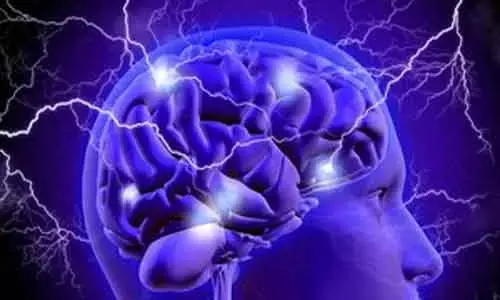- Home
- Medical news & Guidelines
- Anesthesiology
- Cardiology and CTVS
- Critical Care
- Dentistry
- Dermatology
- Diabetes and Endocrinology
- ENT
- Gastroenterology
- Medicine
- Nephrology
- Neurology
- Obstretics-Gynaecology
- Oncology
- Ophthalmology
- Orthopaedics
- Pediatrics-Neonatology
- Psychiatry
- Pulmonology
- Radiology
- Surgery
- Urology
- Laboratory Medicine
- Diet
- Nursing
- Paramedical
- Physiotherapy
- Health news
- Fact Check
- Bone Health Fact Check
- Brain Health Fact Check
- Cancer Related Fact Check
- Child Care Fact Check
- Dental and oral health fact check
- Diabetes and metabolic health fact check
- Diet and Nutrition Fact Check
- Eye and ENT Care Fact Check
- Fitness fact check
- Gut health fact check
- Heart health fact check
- Kidney health fact check
- Medical education fact check
- Men's health fact check
- Respiratory fact check
- Skin and hair care fact check
- Vaccine and Immunization fact check
- Women's health fact check
- AYUSH
- State News
- Andaman and Nicobar Islands
- Andhra Pradesh
- Arunachal Pradesh
- Assam
- Bihar
- Chandigarh
- Chattisgarh
- Dadra and Nagar Haveli
- Daman and Diu
- Delhi
- Goa
- Gujarat
- Haryana
- Himachal Pradesh
- Jammu & Kashmir
- Jharkhand
- Karnataka
- Kerala
- Ladakh
- Lakshadweep
- Madhya Pradesh
- Maharashtra
- Manipur
- Meghalaya
- Mizoram
- Nagaland
- Odisha
- Puducherry
- Punjab
- Rajasthan
- Sikkim
- Tamil Nadu
- Telangana
- Tripura
- Uttar Pradesh
- Uttrakhand
- West Bengal
- Medical Education
- Industry
Recent Marijuana use doesn't raise stroke risk, finds study

MINNEAPOLIS- There has been controversy on link of use of marijuana with increased risk of stroke. Although several larger studies have found an increased risk, other studies have found no such increased risk.
Researchers have found in a new study that recent marijuana use didn't increase and risk of ischemic stroke .The study has been published in the journal Neurology®. Ischemic stroke is a stroke caused by a blockage in a blood vessel, such as a blood clot.
The cannabis plant has 460 constituents. The two main components are tetrahydrocannabinol (THC) and cannabidiol (CBD). It can be consumed by swallowing oil extracts, by the sublingual route, or by smoking or eating the plant. Cannabis medications already in use include oral THC (nabilone, dronabinol) and an oral mucosal spray, nabiximols (Sativex).
"Previous studies that investigated cannabis use and risk of stroke have had conflicting results, some showing a decreased risk and others showing a greatly increased risk," said study author Carmela V. San Luis, M.D., of the University of Mississippi in Jackson and a member of the American Academy of Neurology. "Our observational study looked specifically at recent cannabis use by reviewing drug testing data for people admitted to the hospital. While more research is needed with larger numbers of people, our study lends support to the studies showing that cannabis use does not increase the risk of stroke."
The study involved 9,350 people who were 18 years and older who had been admitted to a hospital and screened with a urine test for drug use. People who tested positive for drugs other than marijuana were excluded from the study. A total of 1,643 people, or 18%, tested positive for marijuana. Those who tested positive were more likely to be male, younger and current smokers than those who tested negative.
San Luis noted that the study captured only whether people had used marijuana recently. It did not collect information about how much marijuana was consumed or any other information about their history of prior use.
Of those who tested positive, 130 of 1,643 people, or 8%, had an ischemic stroke. Of those who tested negative, 16% had an ischemic stroke, or 1,207 of 7,707 people. But after researchers adjusted for other factors that affect stroke risk, such as age, high blood pressure, high cholesterol, sickle cell disease, obesity, diabetes, smoking and heart conditions, there was no link between recent cannabis use and either an increased or decreased risk of stroke.
The study was observational, so the results do not prove that recent marijuana use has no effect on a person's risk of stroke, they only show that researchers found an association.
"Our research adds to the list of studies with conflicting results, so it is important to continue to investigate stroke risk and cannabis use," said San Luis. "Future studies are now needed in larger groups of people that not only include data from drug screenings but also dosing amounts as well as a person's history of cannabis use."
Other limitations of the study include that information on synthetic cannabis was not available and researchers were unable to adjust for risk factors such as physical inactivity and body mass index.
for further references log on to:
Dr Kamal Kant Kohli-MBBS, DTCD- a chest specialist with more than 30 years of practice and a flair for writing clinical articles, Dr Kamal Kant Kohli joined Medical Dialogues as a Chief Editor of Medical News. Besides writing articles, as an editor, he proofreads and verifies all the medical content published on Medical Dialogues including those coming from journals, studies,medical conferences,guidelines etc. Email: drkohli@medicaldialogues.in. Contact no. 011-43720751


